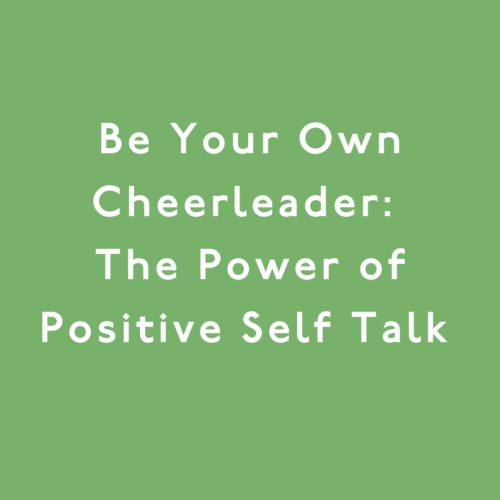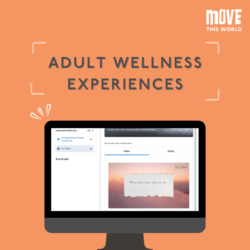Think about the most recent mistake you’ve made. It could be anything from forgetting to buy something at the grocery store to not completing a task on time for work. As you reflect, think about the first thing you said to yourself after making that mistake. Were you beating yourself up? Did you convince yourself that you weren’t capable of doing the task at hand? Now, let’s envision a slightly different scenario. Imagine a friend or family member made the same mistake and came to you for advice. How would your response to them be different than what you said to yourself?
We often engage in negative self talk even with the slightest mistake. But it’s important to note that when we see other people make the same mistake, we don’t immediately jump to negativity. Instead, we usually respond with words of encouragement, remind them that we’re human, and assure them that these things happen. We’re quick to provide reassurance and compassion when others make mistakes, so why can’t we do the same for ourselves?
While making a mistake never feels great, we’re often harder on ourselves than we need to be. We have the power to change pervasive, negative self-talk and become our own personal cheerleader. Positive self-talk, defined as an internal dialogue to make a person feel good, is scientifically proven to boost confidence, reduce stress, and improve overall well-being. Additionally, people who practice positive self-talk are better equipped to solve problems and cope with hardships.
How do we start practicing positive self talk?
The first step is to notice what your current inner dialogue is. Take some time to write down the phrases you’re constantly repeating to yourself throughout the day. Once these phrases are in front of you, ask yourself a few questions:
Is this dialogue productive? Does it make me feel good? Would I speak to someone else like this?
It can be jarring to see how negatively we speak to ourselves, and it often shows why we’re feeling a certain way. For example, negative self talk might make us feel fatigued or rundown, whereas positive self-talk tends to make us feel energized and excited.
We can work on making these phrases kinder, and more productive. That leads us to step two: reframing. Take the phrases you just wrote down and rewrite them in a more positive light. Something that might help with this is thinking about how you’d say these phrases to a loved one.
Here are a few examples of how this might work:
- I’m terrible at writing blog posts → Blog writing is challenging for me, but I am working on developing this new skill
- I’m a failure because I didn’t meet my goal → I didn’t accomplish my goal this time around, but I am still improving
- I’m so stupid for forgetting that → I am human, and forgetting things is part of the human experience
- I mess everything up → I make mistakes like everyone else, and I can learn from them
- I’ll never be able to do that → I haven’t figured out how to do that yet, but I’m working towards it
Positive self talk takes time and patience. Negative thought patterns can be deeply ingrained in our brains, and it takes consistent effort to change them. Even I, the person who just wrote an entire blog post around this topic, catch myself falling into negative self-talk all the time. That’s why the third and final step of developing positive self-talk is interruption and repetition. When you find negative phrases creeping into your head, interrupt them and say your new phrase. Then, repeat it 3 times to yourself. Like any new skill, it takes time. But gradually, the reframed thoughts that we tell ourselves will begin to come more naturally.
Move This World Can Help Students Practice Positive Self-Talk:
The earlier we can start practicing positive self talk, the more equipped we become to manage our emotions. Our innovative, PreK-12 curriculum cultivates the key life and leadership skills necessary for students to practice positive self-talk, cultivate a healthy mindset, and build emotional resilience to pursue and achieve their goals.
Have your students practice these skills today:
Messing Up, Up, Up (Early Elementary)
Doubting Letter (Late Elementary)
Out the Doubts (Middle School)
What Do You Expect? (High School)
In a world where self criticism comes easily, we often forget to show ourselves the same compassion we extend to others. But it’s important to remember that we have the power to change that and become our own personal cheerleaders. So next time you catch yourself being critical of a mistake, pull out the pompoms instead.










